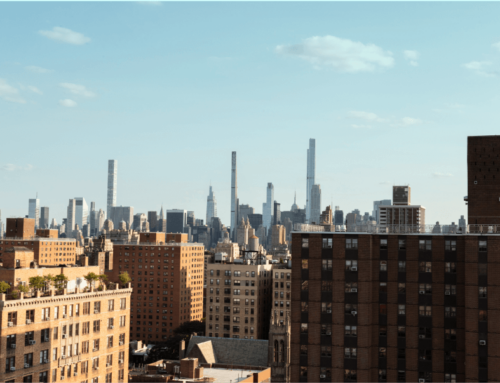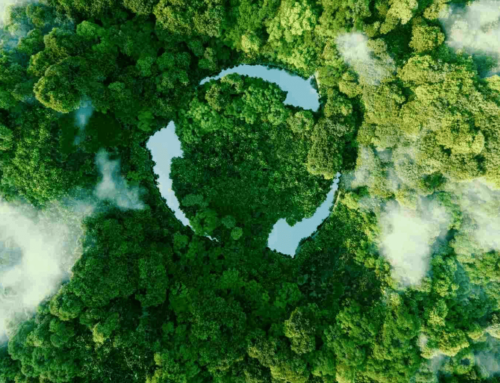Even though a good amount of the country has been working remotely for the majority of the COVID-19 pandemic, paper waste remains a significant issue for businesses across different industries. The amount of wood and paper we throw away each year is enough to heat 50,000,000 homes for 20 years (according to usi.edu).
If your business, or your home office, is contributing to this alarming statistic, it’s time for a more sustainable approach. While paper may seem to be a normal and essential part of your daily functions, there are a lot of simple ways to avoid it or lessen your dependence on it. Cutting down on paper waste should be viewed as a high priority on your sustainability checklist, just like saving energy or reducing water use.
Whether you are a business owner/manager or you are working from home, read below to learn some of the simplest ways you can cut back on paper waste in your work life.
1. Minimize paper use by communicating electronically with employees and customers
Thanks to technological advances, today’s businesses have many opportunities to work with a lot less paper than in previous decades. Tools such as email, intranets, internet, and document scanners cannot just help you reduce paper use, but also save you time and money. Additionally, email, text messages, and other platforms (including Zoom, Microsoft Teams, and Google Chat) can be used to send information without harming the environment. These are a great way to connect with your team while working remotely. Also, if your business sends out regular communications to customers or clients, it may be time to switch to a digital approach when possible.
2. Switch to a digital database
Traditionally, most businesses stored critical information and documents by filing them away in filing cabinets. If your business is still doing this or you are doing this in your home office, then you may need to re-evaluate your method. Digitalizing important information into a centralized database not only reduces waste in terms of paper but also eliminates the burden and space required to store these documents. Plus, saving your documents onto a server or cloud-based system is an eco-friendly solution that can also enhance office productivity. A digital archive permits you to keep all your files organized and stored to your preference, allowing employees to access them when they need them, keeping the files safe.
3. If you must print something, be sure to print it on recycled paper
Buying recycled paper doesn’t just save energy, but it also cuts back greenhouse gas emissions and keeps landfill space free for other types of waste that can’t be recycled. Consider also purchasing paper made from hemp, organic cotton, pre-recycled paper materials, or other alternatives that could also help cut down paper production.
4. Repurpose used paper
Whether you’re working from home or in the office, avoid wasting paper that’s printed on only one side. Instead, collect it over time and turn it into small notepads for scratch paper.
5. Reuse scrap paper for mailing packages
Shredded paper can be used for packaging fillers for various applications.
By following these tips to save paper in the office (or in your home office if you are working remotely), you will be doing your part to help encourage a sustainable planet. If you’re looking for other ways to help contribute to a greener environment, then be sure to follow us on our blog.
Kiwi Energy emphasizes sustainability, using digital communications when possible. We’ve been able to significantly cut back on paper communications with the introduction of Salesforce tablets in 2019. We also primarily use digital platforms to dispatch our Ecogold loyalty program, sending regular digital communication to our customers to help them be more energy-efficient and sustainable at home.
The Financial Costs of Paper Waste
Beyond the direct expenses of purchasing paper and printing supplies, companies incur hidden costs associated with storage, filing, and document retrieval.
Industry research from Gartner estimates that as much as 3% of a company’s revenue is spent on paper, printing, filing, storing, and maintaining information files.
The time employees spend managing paper documents translates to reduced productivity and increased labor costs. The space required for physical document storage also often leads to higher real estate expenses or the need for offsite storage facilities.
Paper-intensive processes are also more prone to errors and inefficiencies, potentially resulting in costly mistakes or missed opportunities. By reducing paper waste, businesses can streamline operations, cut overhead costs, and allocate resources more effectively, ultimately improving their bottom line.
Environmental Costs of Paper Waste
Deforestation, driven partly by paper production, contributes significantly to climate change by reducing the Earth’s capacity to absorb carbon dioxide. The paper industry also significantly consumes water and energy, leading to increased greenhouse gas emissions and a strain on water resources.
Did you know that paper accounts for roughly 26% of landfill waste?
Paper waste in landfills generates methane, a potent greenhouse gas, as it decomposes. When improperly disposed of, the chemicals used in paper production and the inks used in printing can contaminate soil and water sources.
By reducing paper waste, we can help mitigate these environmental impacts, preserve forests, conserve water and energy, and reduce the overall carbon footprint associated with paper production and disposal.






